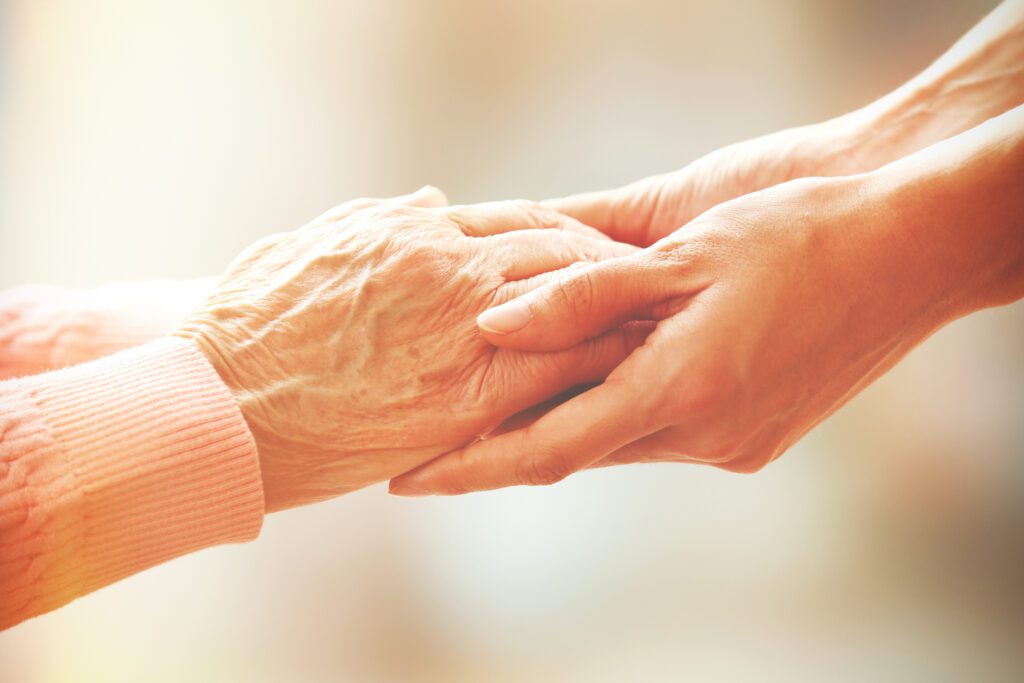A handful of federal and state programs provide assistance to unpaid family caregivers. Because that assistance is limited, philanthropic organizations are funding additional initiatives to give relief to people who often sacrifice their careers and health to act as caregivers for older relatives.
Unpaid caregivers provide 75 to 80 percent of the total care that older adults receive. Because they are devoting hours to caring for aging parents and other relatives, caregivers have less time to work for pay. Caregiving reduces the lifetime earnings of an average family caregiver by 15 percent.
Devoting substantial hours to caregiving has an additional economic cost later in the caregiver’s life. Reduced earnings decrease contributions to Social Security and retirement accounts. Caregivers who are employed part time typically lose the opportunity for employer-provided health insurance. Remaining outside of the full-time workforce also impairs their opportunity to advance in a career.
Apart from making financial sacrifices, caregivers face physical and mental health challenges. While caregiving can be emotionally rewarding, research confirms that family caregivers experience elevated stress and anxiety. Apart from financial concerns, they often worry about making a mistake with medication management.
Family caregivers suffer disproportionately from depression and social isolation. The time they spend caring for others leaves them less time to care for themselves, a dynamic that impairs physical health and leads to an increased need for acute care.
Any relief that unpaid caregivers can find is welcome. The federal and state governments provide limited relief, while philanthropic organizations try to offer additional help.
Government Assistance for Caregivers
The National Family Caregiver Support Program is the most significant federal program that addresses the needs of family caregivers. The program provides grants to states to fund supportive services for unpaid caregivers. Funded services include respite care, training to help caregivers address the needs of people with dementia, and counseling to help caregivers manage stress.
The Veterans Administration Caregiver Support Program (more formally, the VA Program of Comprehensive Assistance for Family Caregivers) provides a monthly payment to family caregivers who assist qualified disabled veterans. The program also pays for thirty days of respite care each year and offers mental health counseling to help caregivers cope with depression, stress, and other psychiatric conditions.
Some state Medicaid programs pay family and friends to provide caregiving services to Medicaid patients. Those programs recognize that caregivers help Medicaid save money that would otherwise be spent on institutional care. How long those programs will continue to be funded is unclear, given differing perspectives on the federal Medicaid budget.
Some states use Medicaid grants to offer Consumer-Directed Personal Assistance Programs. The programs allow disabled Medicaid patients to choose their own care provider, including family members or friends, whose services are paid as a Medicaid benefit.
Original Medicare does not usually pay caregivers. In 2024, however, the agency that administers Medicare began to offer a new benefit known as Guiding an Improved Dementia Experience (GUIDE). The benefit offers up to $2,500 annually to pay for respite services for family caregivers of Medicare patients who have a dementia diagnosis.
In addition, some Medicare Advantage programs offer supplemental benefits that are not included in Original Medicare. They may include respite care and adult day services.
Philanthropic Assistance for Caregivers
Exhale – The Family Caregiver Initiative provides respite opportunities for family caregivers of older adults. In the words of the Initiative, taking a break from caregiving reinforces “well-being and effectiveness, leading to better health, social-emotional outcomes, and lower costs of care.” The Initiative began in Western New York and has since expanded to Southeast Michigan.
A 2025 grant to the Frenchtown Center for Active Adults in Monroe, Michigan has enabled the Center to “try something innovative.” The grant will fund the Center’s Caregiver Caravan Project. The Center will transport older adults to its Adult Day Services program while taking their caregivers on outings to a zoo, art museum, or other destinations within an hour of Monroe. The Center views the outings as social opportunities that will help caregivers relax, de-stress, and avoid social isolation.
Some local Meals on Wheels programs offer respite services to caregivers. For example, Meals on Wheels Senior Services of Rockwall County, Texas teams with the local Area Agency on Aging to provide caregiver support, including an $800 voucher that can be used to pay for professional caregiving services while the family caregiver takes a break to care for her own needs.
Caregiver support groups combat social isolation by bringing family caregivers together, either in person or by Zoom. The groups encourage caregivers to share problems and solutions, learn about community resources, and form connections. One online caregiver support group encourages discussions by emails that caregivers can read and send when they find time in their busy days.
